Your Guide to Accessing Gender-Affirming Care

"Hearst Magazines and Yahoo may earn commission or revenue on some items through these links."

[table-of-contents] stripped
Gender-affirming care in the United States is under attack—and in some states, the assaults show no signs of stopping. Last year, there was an unprecedented spike in bills that targeted gender-affirming care—defined as social, behavioral, legal, and medical interventions that affirm one’s gender identity—as well as a record number of anti-trans bills introduced across state legislatures. State governments have not only come for adult and children’s medical care, but also LGTBQ-related curricula in schools and gender expression through restrictions on things like drag performances and the use of choosen pronouns in schools. Some states have even proposed bills that will stop legally recognizing trans adults in public life.
The situation is dire, but the benefits of gender-affirming care are clear. This evidence-based, and in some cases even life-saving, care can improve mental and physical health for trans people, and is supported by major medical associations, including for trans youth. As ELLE illustrates throughout our Affirmed project, gender-affirming care also goes beyond health care. Gender-affirming care includes social or legal transitions, and some people might never even seek medical intervention.

“Every patient’s unique, and what’s necessary, required, and medically appropriate in one patient may not be in another,” Jesse Ehrenfeld, the first openly gay president of the American Medical Association, tells ELLE. “That’s why it’s so important to have the range of options for gender-diverse patients to make sure you can provide care that is safe, effective, and appropriate.”
These bans also affect trans populations beyond just creating barriers to access care. Jack Turban, MD, the director of the Gender Psychiatry Program at the University of California, San Francisco, and author of the upcoming book Free to Be: Understanding Kids & Gender Identity, explains that some of the biggest predictors for good mental health outcomes for trans kids come from acceptance by families, peers, and communities. “If they’re getting messages everywhere that who they are is wrong or shameful or bad, that has a really dramatic negative mental health impact, not only during their childhood and adolescence, but really throughout their lifespan,” Turban says. “I live in San Francisco. It’s unlikely we’re going to have legislation directly impact the kids I take care of, but they’re on social media, they’re reading the news, they’re hearing these things about other states, and they’re impacted nonetheless.”
But if you are in a state where this legislation is directly impacting you or the people you love, know that there are still options. Below, find several organizations that are helping connect patients with care, as well as tips from experts on finding affirming doctors in your area.
How to Get Care, No Matter Where You Live
Across the country, experts are working hard to connect people to legal medical care. Below, four organizations that help get patients gender-affirming care—no matter what state laws currently dictate.
Campaign for Southern Equality
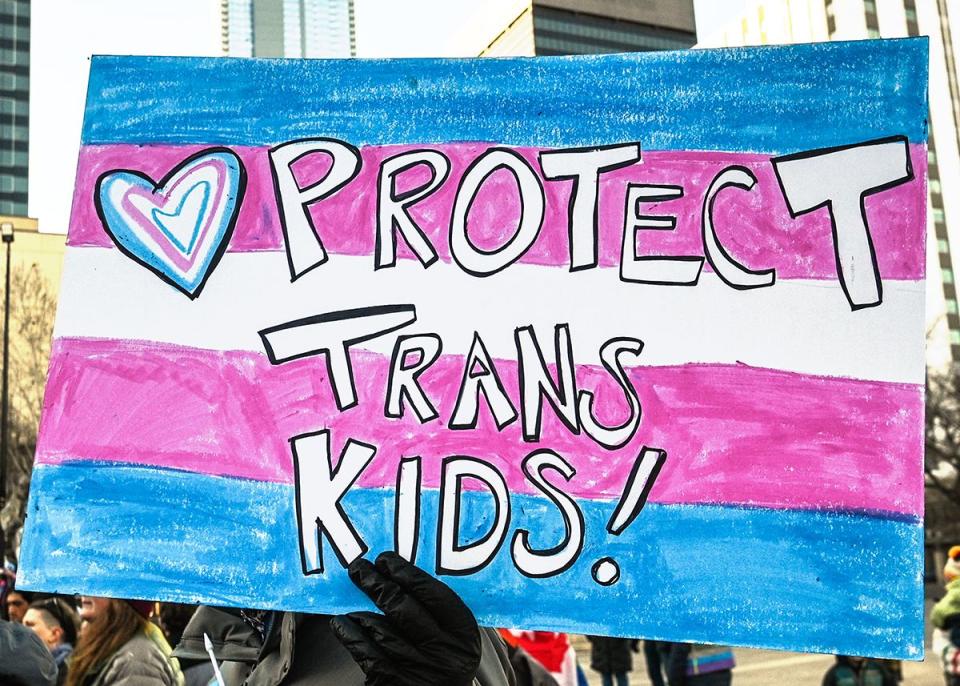
What they do:
In response to legislative attacks on gender-affirming care for youth, the Campaign for Southern Equality launched the Southern Trans Youth Emergency Project, which serves as a resource hub for people in the south, providing both patient navigation services and grants.
How:
When you reach out, STYEP will walk you through your health care options, taking into account fluctuating laws; that could mean driving to a bordering state to get care, scheduling a telehealth call, or even getting on an airplane. (STYEP partners with an organization called Elevated Access, which flies people to appointments.) STYEP also provides families with $500 grants that they can use for any part of their health care process, including transportation, prescriptions, appointment costs, and more. Currently, the project can re-up grants after six months, which is often essential, because when it comes to gender-affirming medical care for youth, many people have reoccurring appointments.
Campaign for Southern Equality also created the Trans in the South Guide, a directory of more than 400 health and legal service providers who are trans-affirming.
From the source:
“It is an unprecedented time of political attack on trans youth, but it’s also an unprecedented time of support for trans youth,” Carolyn Jones, the STYEP program manager, tells ELLE. “The legislation is not representative of the people who live in these places and the support these kids are getting in their day-to-day lives.” Jones continues, “How do we reconcile that kids are feeling more and more sure about who they are—and feeling more and more like folks love them and support them for who they are—and now they have to travel, in some instances, over 12 hours just to receive a prescription?”
QueerMed
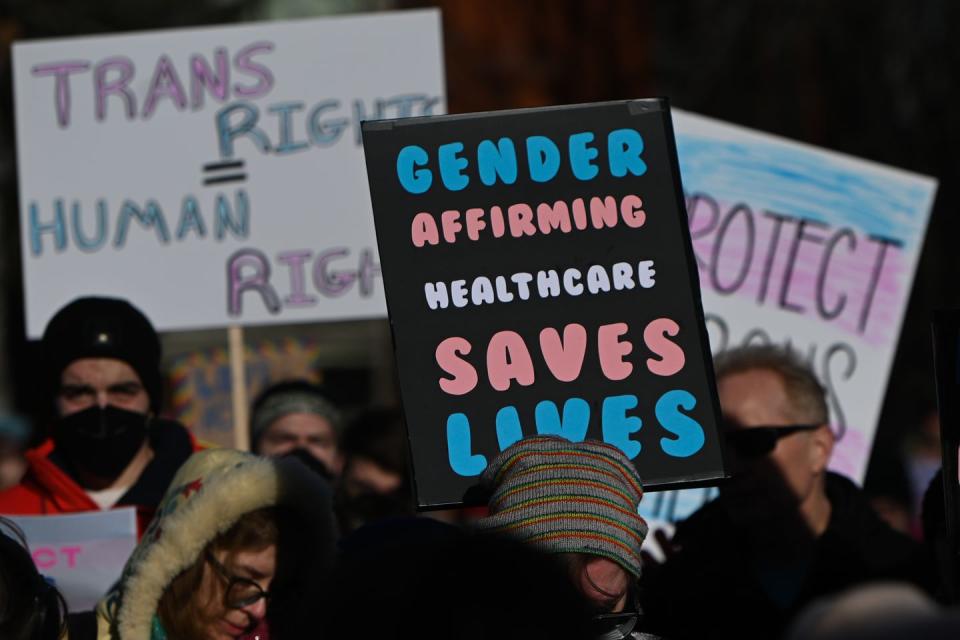
What they do:
Physician Izzy Lowell, MD, started QueerMed in 2017 after realizing there was a huge demand for gender-affirming telehealth care. Currently, QueerMed works across 48 states, providing hormone therapy to trans and nonbinary adults and teens.
How:
Currently, any adult (except for those living in Florida) can access QueerMed from any state. However, minors can travel with a parent or guardian to the nearest state without a ban in order to see a QueerMed physician. As Lowell explains, if a patient lives in Oklahoma, where gender-affirming care for minors is banned, and they travel to Kansas, QueerMed can treat them under Kansas law. However, she notes that traveling is getting harder and harder as more and more states enact bans.
Traveling for these telehealth appointments can also be quite expensive, since many teen patients need to have follow-ups every few months. For that reason, QueerMed has some grant funding to help with travel costs.
From the source:
“Every visit, people say, ‘How do I cope? This country hates me,’” Lowell tells ELLE. “It’s not even a misplaced anxiety. Every day, people in Florida tell me they’ve faced much more personal, overt discrimination and hatred in their day-to-day life in the last six months than they ever have before in their lives. People ask me, ‘How do I deal with that?’ I say that it won’t always be like this. It might get worse before it gets better, but it won’t always be like this. Just try to survive. Just don’t give up until it gets better.”
Kentucky Health Justice Network
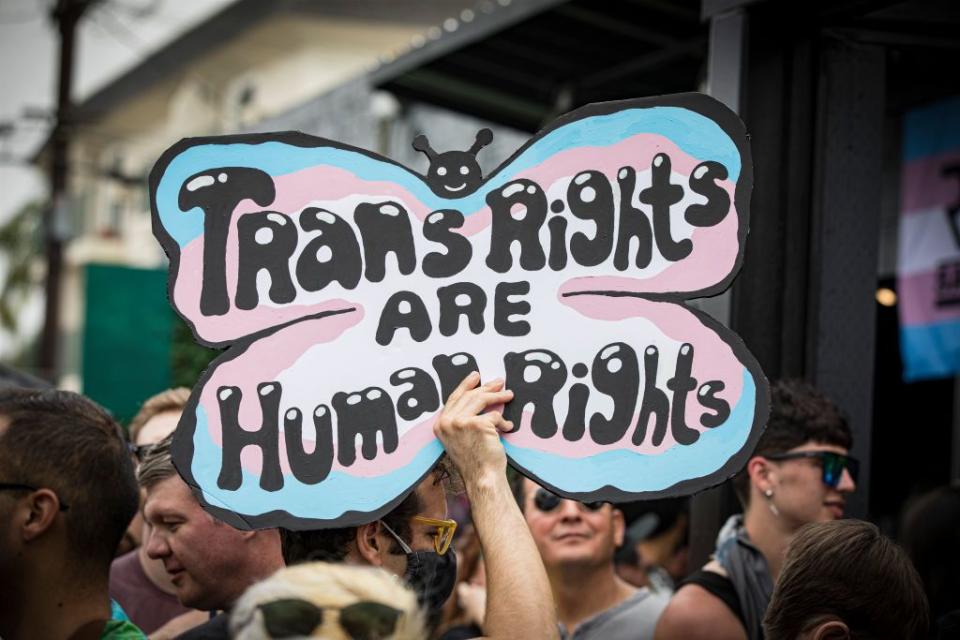
What they do:
The Kentucky Health Justice Network provides practical support for Kentuckians accessing both abortion care and gender-affirming care.
How:
The organization provides what Oliver Hall, the trans health director for KHJN, calls “transition mapping,” i.e. helping people figure out their transition goals and how to meet them, as well as offering technical assistance, like insurance appeals. Hall might walk patients through potential providers, including what questions they could ask, and how to talk to insurance companies about covering care. Due to Kentucky laws restricting gender-affirming care for trans youth, Hall will also help these patients figure out their options for care and get them connected to resources and clinics.
In 2018, the organization also started a fund, which people can use for gender-affirming medical care as well as other avenues of affirmation, including gender-affirming clothing and other related items. There’s also a surgical grant program for gender-affirming surgery.
From the source:
“Having someone to answer what seem like pretty basic questions makes things that feel insurmountable suddenly become obtainable,” Hall tells ELLE. “That’s what I struggled with when I realized I wanted to pursue a medical transition. There’s so much to navigate. Just knowing there are people whose job it is to help you and be honest [is so helpful]. People just being like, ‘Hey, this is what the situation is. It kind of sucks. This is the best we can do. Do you want help with that?’”
Contigo Fund
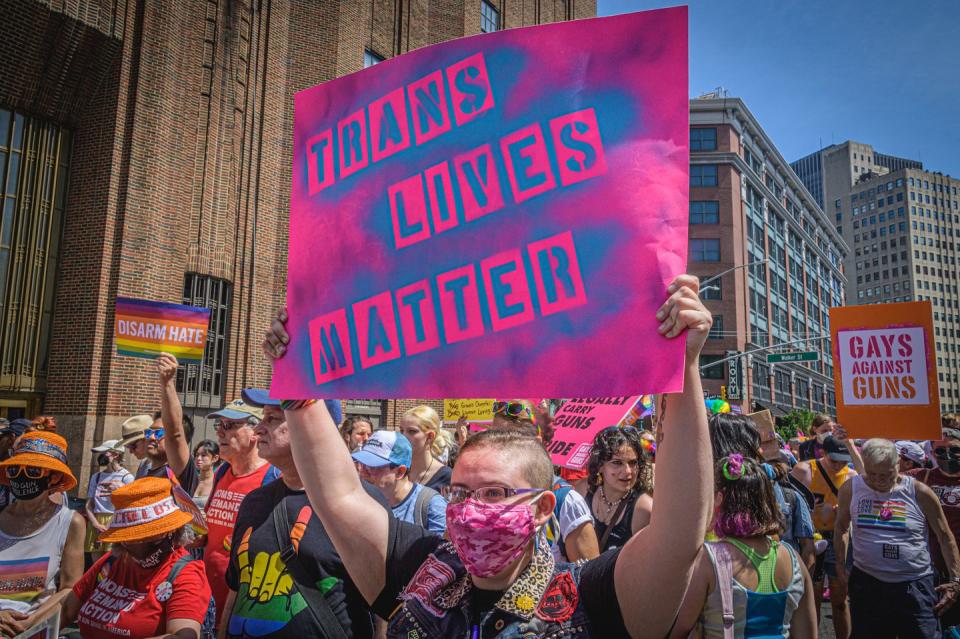
What they do:
The Contigo Fund, which provides financial support to LGBTQ+, Latinx, and immigrant communities in central Florida, emerged out of the 2016 Pulse nightclub shooting in Orlando, Florida, which particularly targeted LBGTQ+ people of color. The goal was to have a fund led by and for queer and trans people of color, including those who are undocumented or for whom English is not a first language.
How:
In partnership with the LGBT+ Center Orlando and local trans-led grassroots groups, Contigo established the Central Florida Emergency Trans Care Fund, which helps individuals access gender-affirming care. (Florida is currently the only state that restricts care for adults.) The Contigo Fund has partnered with five gender-affirming care service providers in the central Florida region. Per Marco Antonio Quiroga, founding executive director of the Contigo Fund, the organization directly distributes funds to these providers, who then offer monetary assistance to those most in need.
From the source:
“A lot of people are like, ‘I don’t know a trans person, so I don’t feel like this is an issue that I need to be activated around or aware of or concerned about,’ and all of those things aren’t true,” Quiroga says. He’d tell those people: “Do research. Talk to people. Connect to the issue more directly, because feeling disconnected to an issue that’s impacting people within your own community is the reason why we lose so much in terms of our ability to be self-determined. That will affect them later down the road. Even if it’s not within their generation, it’ll be their children who are going to pay that cost.”
How to Find Affirming Doctors
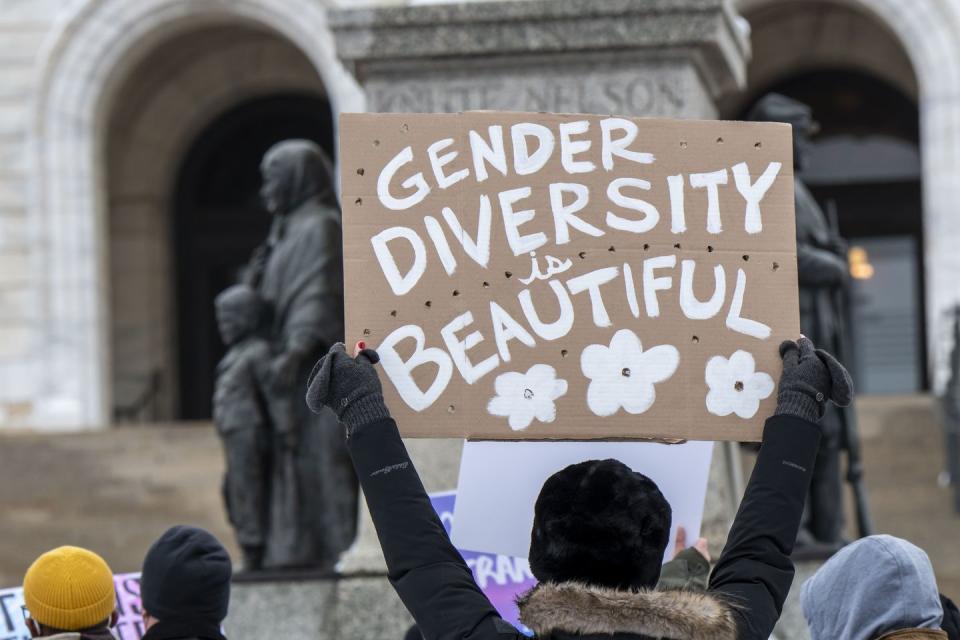
Locating medical providers who are knowledgable and affirming is essential, especially in a time of increased hostility. Patients can always reference the LGBTQ+ Healthcare Directory as a place to start.
In their work, Oliver Hall, the trans health director for Kentucky Health Justice Network, tries to connect people to the closest provider who will treat them fairly. In cases where there isn’t a known provider, Hall offers to walk patients through what the appointment might look like. And if the provider turns out to be hostile and the patient feels like they have no other options, Hall treats it the same as any other kind of conflict navigation: “Try to find common ground to get the provider to understand that they have an investment in that person’s care. Like, ‘I know we both want me to be able to come back here and get the care I need, because I really need it, and you’re the provider in my area. Here’s what I need to do that. Are you willing to do that?’ Starting from a shared understanding of goals. When you put it that way, I think people soften a bit.”
If you’re still searching for providers, Uri Belkind, MD, the associate medical director for adolescent medicine at Callen-Lorde Community Health Center, which provides health care to New York’s LBGTQ+ communities, suggests reaching out to centers like Callen-Lorde that offer gender-affirming care, as they can oftentimes share resources. “Not surprisingly, many of these organizations don’t broadly advertise their services because of the fear of pushback,” he says.

But Belkind emphasizes that the current legal landscape doesn’t mean this care is going away: “There has been more research published in the last six or seven years than anytime before then around transgender health. There are more knowledgeable people and people that have had access to health services that are safe, welcoming, and effective. Everything we have learned from a medical standpoint and a societal standpoint in the last few years, it can’t be erased. Transgender people have been around forever, and they will continue to be around forever.”
Your State’s Status
The below map, created and maintained by the Movement Advancement Project, shows states that have enacted laws banning medically necessary care for trans youth, though some might not currently be in effect. The map also shows states that have passed “shield” laws that protect access to this medical care.

This story is part of ELLE’s Affirmed series helmed by guest editor Tommy Dorfman that explores gender-affirming care in all its many forms. All stories were done with support from GLAAD, and all illustrations were done by Anshika Khullar, an Indian, nonbinary transgender artist.
You Might Also Like

